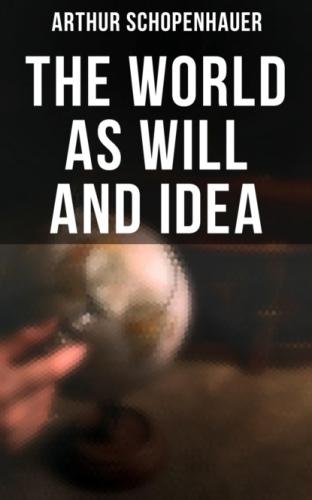It only remains for us to take the final step, the extension of our way of looking at things to all those forces which act in nature in accordance with universal, unchangeable laws, in conformity with which the movements of all those bodies take place, which are wholly without organs, and have therefore no susceptibility for stimuli, and have no knowledge, which is the necessary condition of motives. Thus we must also apply the key to the understanding of the inner nature of things, which the immediate knowledge of our own existence alone can give us, to those phenomena of the unorganised world which are most remote from us. And if we consider them attentively, if we observe the strong and unceasing impulse with which the waters hurry to the ocean, the persistency with which the magnet turns ever to the north pole, the readiness with which iron flies to the magnet, the eagerness with which the electric poles seek to be re-united, and which, just like human desire, is increased by obstacles; if we see the crystal quickly and suddenly take form with such wonderful regularity of construction, which is clearly only a perfectly definite and accurately determined impulse in different directions, seized and retained by crystallisation; if we observe the choice with which bodies repel and attract each other, combine and separate, when they are set free in a fluid state, and emancipated from the bonds of rigidness; lastly, if we feel directly how a burden which hampers our body by its gravitation towards the earth, unceasingly presses and strains upon it in pursuit of its one tendency; if we observe all this, I say, it will require no great effort of the imagination to recognise, even at so great a distance, our own nature. That which in us pursues its ends by the light of knowledge; but here, in the weakest of its manifestations, only strives blindly and dumbly in a one-sided and unchangeable manner, must yet in both cases come under the name of will, as it is everywhere one and the same—just as the first dim light of dawn must share the name of sunlight with the rays of the full mid-day. For the name will denotes that which is the inner nature of everything in the world, and the one kernel of every phenomenon.
Yet the remoteness, and indeed the appearance of absolute difference between the phenomena of unorganised nature and the will which we know as the inner reality of our own being, arises chiefly from the contrast between the completely determined conformity to law of the one species of phenomena, and the apparently unfettered freedom of the other. For in man, individuality makes itself powerfully felt. Every one has a character of his own; and therefore the same motive has not the same influence over all, and a thousand circumstances which exist in the wide sphere of the knowledge of the individual, but are unknown to others, modify its effect. Therefore action cannot be predetermined from the motive alone, for the other factor is wanting, the accurate acquaintance with the individual character, and with the knowledge which accompanies it. On the other hand, the phenomena of the forces of nature illustrate the opposite extreme. They act according to universal laws, without variation, without individuality in accordance with openly manifest circumstances, subject to the most exact predetermination; and the same force of nature appears in its million phenomena in precisely the same way. In order to explain this point and prove the identity of the one indivisible will in all its different phenomena, in the weakest as in the strongest, we must first of all consider the relation of the will as thing-in-itself to its phenomena, that is, the relation of the world as will to the world as idea; for this will open to us the best way to a more thorough investigation of the whole subject we are considering in this second book.33
§ 24. We have learnt from the great Kant that time, space, and causality, with their entire constitution, and the possibility of all their forms, are present in our consciousness quite independently of the objects which appear in them, and which constitute their content; or, in other words, they can be arrived at just as well if we start from the subject as if we start from the object. Therefore, with equal accuracy, we may call them either forms of intuition or perception of the subject, or qualities of the object as object (with Kant, phenomenon), i.e., idea. We may also regard these forms as the irreducible boundary between object and subject. All objects must therefore exist in them, yet the subject, independently of the phenomenal object, possesses and surveys them completely. But if the objects appearing in these forms are not to be empty phantoms, but are to have a meaning, they must refer to something, must be the expression of something which is not, like themselves, object, idea, a merely relative existence for a subject, but which exists without such dependence upon something which stands over against it as a condition of its being, and independent of the forms of such a thing, i.e., is not idea, but
